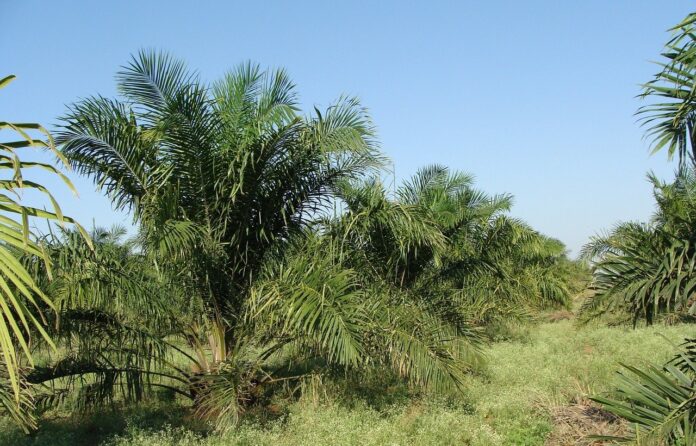In the modern world, the consumption of palm oil is constantly growing. Moreover, we use it not only as food but in the production of shampoos, dishwashing detergents, cosmetics, and even biofuels. Despite all the apparent benefits for global manufacture, oil palm cultivation also has opposing sides. Palm oil is dangerous to the human heart and the environment. Let’s try to understand this problem in more detail.
What Is Palm Oil?
We obtain this product from the fruit of oil palms. At room temperature, it remains in a semi-solid state and belongs to highly saturated vegetable fats. Traditionally, this oil is used as an edible vegetable oil by Southeast Asia, Africa, and Brazil residents. Recently, however, it has been more actively penetrating the food industry in other regions.
How Does Palm Oil Destroy the Rainforests?
Palm oil production requires special conditions: stable high humidity and temperature and, most importantly. For example, in Indonesia, where a significant part of the world’s oil is produced, more than 9 million hectares are cultivated. According to forecasts, in the next five years, the area will grow to 26 million hectares.
Based on the UNEP (the United Nations Environment Program) reports, if the current rate of deforestation continues, we can destroy the natural rainforests of Indonesia in the coming years. Moreover, deforestation is accompanied by significant CO2 emissions. According to the Intergovernmental Panel on Climate Change (IPCC), palm oil plantations emit about 18 percent of greenhouse gases, significantly contributing to climate change.
Indonesia’s forests are home to a wide variety of animals and plants, including endangered ones. The destruction of their natural habitat leads to their extinction. Also, plantation workers regularly kill animals that can harm production. So, in 2006 alone, more than 1,500 orangutans were killed.
Where Is Palm Oil Used?
As mentioned above, palm oil is actively used in various fields, primarily in cooking. Ice cream, chocolate, cereal, chips, infant formula, canned soups, and fries in the fast-food industry are just a few items for which we use palm oil or its derivatives. It is also highly in demand in everyday life: it is used to manufacture various household goods. The other sphere of application is to create biodiesel, which is an alternative energy source.
Why Is Palm Oil Not Listed as an Ingredient on Most Products?
Most growers prefer to disguise palm oil as “vegetable oils and fats”; a few of them, mainly from the organic industry, label products containing palm oil and fat. Alternative names of ingredients are also actively used. For example, you can recognize them by the presence of words “stearate,” “stearyl,” “cetyl,” “cetearyl” in titles.
What is ‘sustainable’ palm oil?
Based on all the advantages and the high degree of involvement of palm oil in various industries, the question is regularly raised not about reducing its production but its environmentally friendly use. For example, in cooperation with WWF, the largest palm oil producers have developed the Roundtable on Sustainable Palm Oil (RSPO) certification system.
Its goal is socially and environmentally friendly manufacturing. In particular, we are talking about the prohibition of deforestation of forests’ certain types, the development of rules for the local flora and fauna protection, and the protection of the local population rights. So far, this process is far from perfect: there are legal ambiguities, violations by individual companies, ignorance of climate change, etc.
What Can Be Done to Halt Deforestation for Oil Palm Cultivation?
As noted in the previous point, one of the tools to halt deforestation is certification systems like RSPO. Also, the producing countries’ governments should develop legislation that will promote sustainable commodity production and protect the rights of their people. As for consumers, you should try to buy products made following all environmental standards. Remember that only through joint efforts will we achieve a positive solution to this global problem.
Why Are There So Many Controversies About Palm Oil?
The contradictions are caused by the presence of both pluses and minuses of palm oil cultivation. On the one hand, it is suitable for producing vast quantities of food, household goods, and raw materials. On the other hand, it causes colossal damage to the environment in the production regions and on a global scale.
Final Thoughts
Thus, the mass production of palm oil is a severe controversial issue. Today it is impossible to abandon this product completely. At the same time, maintaining the current rates and principles of production poses a global threat to both nature and humans. In this regard, the question of the rational and safe production of palm oil is more acute than ever. It can only be solved by joint efforts at all levels: from governments and major manufacturing companies to ordinary food buyers.







